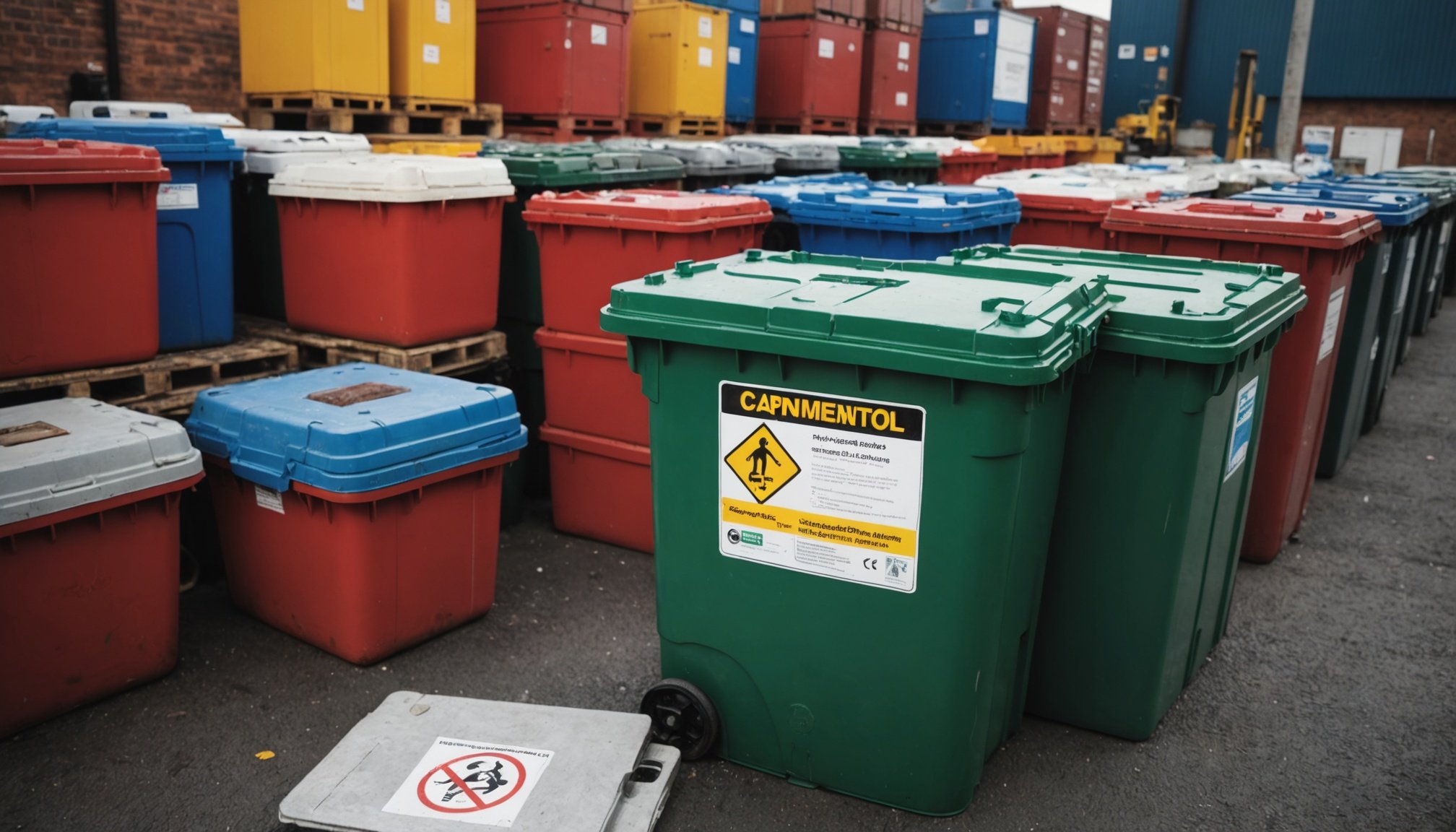Overview of UK Environmental Regulations
The UK environmental regulations on hazardous waste ensure public health and environmental protection. These regulations mandate businesses to handle waste responsibly, preventing contamination and harm.
Key Legislation includes the Environmental Protection Act 1990, which defines waste disposal responsibilities, and the Hazardous Waste Regulations 2005, detailing classification and disposal methods. These laws require businesses to classify their waste accurately and ensure it is handled, recycled, or disposed of safely.
Also to discover : Mastering Vendor Agreements: A Comprehensive Legal Guide for UK Enterprises
Compliance is crucial not only for legal adherence but also for corporate responsibility. Improper waste management can lead to severe penalties and environmental hazards. Businesses must prioritize reducing environmental footprints, thus ensuring sustainable practices.
To achieve this, understanding waste types and implementing efficient waste reduction strategies is essential. Businesses must stay informed about regulations, adapt to changes, and ensure strict adherence to avoid legal and reputational damage. Compliance involves more than lawfulness; it involves a commitment to the long-term well-being of our environment.
In the same genre : The Ultimate Legal Handbook for UK Employee Relocation to International Destinations
“Compliance with UK environmental regulations is not just a legal obligation; it’s about playing our part in protecting the planet.” Understanding its importance ensures safe and sustainable business operations in the ever-evolving regulatory landscape.
Key Strategies for Compliance
Understanding compliance strategies is vital for businesses handling hazardous waste. First, accurately identifying and classifying different types of hazardous waste is crucial. This step ensures that businesses align their disposal processes with the correct regulations, avoiding potential legal infractions.
Developing a comprehensive environmental management plan is another essential strategy. Such plans should outline procedures for efficient waste handling, aimed at minimising environmental impact. Involving employee training and promoting awareness about regulatory requirements helps in maintaining up-to-date compliance. Employees must be knowledgeable about the types of waste their organisation handles and the legal implications of improper management.
Moreover, implementing robust waste tracking systems supports regulatory adherence by ensuring proper documentation. Regular audits of waste management processes further bolster compliance, helping businesses identify and rectify potential lapses.
By embracing these strategies, businesses not only meet regulatory adherence requirements but also foster a culture of environmental stewardship. This commitment enhances corporate responsibility, positively impacting both the company’s reputation and the environment. As regulations evolve, businesses must remain proactive in adapting and improving their hazardous waste protocols, thereby securing a sustainable future.
Best Practices for Secure Hazardous Waste Disposal
Ensuring secure disposal of hazardous waste is critical for safety and compliance. The choice of disposal methods significantly impacts environmental health. Recommended practices include using certified and licensed waste carriers. These carriers possess the expertise and authorisation to handle hazardous waste, thus mitigating the risk of improper disposal. For effective hazardous waste management, it is essential to maintain comprehensive documentation and record-keeping.
Records should encompass waste types, quantities, point of origin, and final disposal details. This not only aids in compliance with UK environmental regulations but also ensures traceability and accountability. Consistent documentation also serves as a safeguard against legal issues, offering proof of compliance during regulatory audits.
Employing these best practices safeguards the environment and upholds corporate responsibility. In addition, businesses can engage in regular reviews of their disposal processes, fostering continuous improvement. By staying informed and employing secure waste management practices, organisations contribute to a cleaner and safer environment.
In summary, the integration of certified carriers, diligent record-keeping, and routine process evaluations collectively fortify a robust approach to hazardous waste management, aligning with the UK’s commitment to environmental protection.
Case Studies of Successful Compliance
Exploring case studies offers valuable insights into successful hazardous waste management. Notably, UK businesses have adopted various strategies to ensure compliance success. For instance, a leading manufacturing company streamlined its waste operations by thoroughly classifying waste types, significantly reducing non-compliance risks. This initiative not only improved operational efficiencies but also reinforced their commitment to regulatory adherence and environmental protection.
Conversely, examining lessons from non-compliance case studies reveals the pitfalls of inadequate waste management. A healthcare provider faced steep fines due to improper waste classification and disposal procedures. This non-compliance incident underscored the critical need for robust training programs and stringent adherence to waste management protocols.
Across sectors—such as healthcare and manufacturing—implementing best practices remains crucial for sustainable operations. These practices include adopting efficient waste segregation methods and regularly auditing waste management systems. Additionally, cross-industry cooperation helps businesses stay aligned with evolving regulations and industry standards.
Learning from these examples, businesses can enhance their waste management frameworks, fostering a culture of compliance and environmental stewardship. By prioritising these successful strategies, organisations can build resilient systems that adapt swiftly to policy changes.
Resources for Further Information
Staying informed about UK environmental regulations and compliance guidance is crucial for businesses managing hazardous waste. Numerous additional resources are available, providing comprehensive insights into regulatory adherence. Key governmental bodies like the Environment Agency offer online databases and publications to help businesses align with legal requirements. They provide updates on regulations and offer consultations for compliance queries.
Industry standards, such as those by the British Standards Institution, grant detailed frameworks for environmental management. Non-governmental organizations also play a vital role by offering independent insights and resources aimed at fostering compliance success and sustainable practices.
Training programs and workshops are essential for businesses intent on maintaining up-to-date compliance knowledge. Such programs often cover the latest in waste management practices and pertinent legislative changes. Workshops, conducted by industry experts, are available through organisations like the Chartered Institution of Wastes Management.
Utilising these regulatory information sources enables businesses to enhance their compliance strategies. Being proactive and engaging with these resources ensures businesses are well-equipped to tackle the challenges of hazardous waste management, securing both legal compliance and environmental stewardship.











